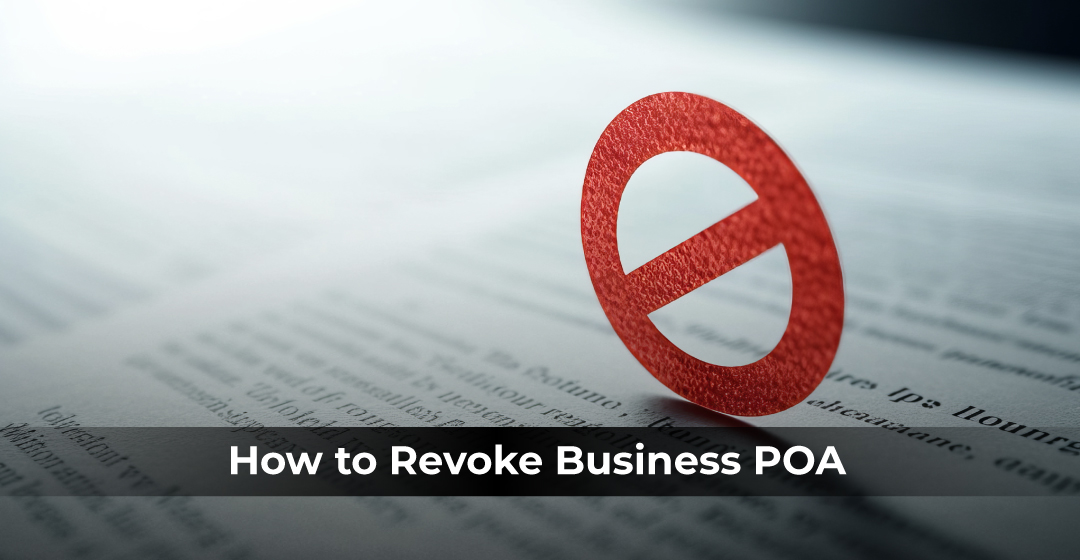Managing a business in the UAE often requires delegating authority through a Power of Attorney (POA). This legal tool allows an appointed representative (attorney-in-fact) to act on behalf of a business or individual. However, business needs to evolve, and sometimes the POA must be revoked or amended. Failing to properly update or cancel a POA can expose your business to significant risks, including unauthorized transactions or legal disputes.
This guide provides a clear, step-by-step approach to revoking or amending a business POA in Dubai or Abu Dhabi, ensuring your actions are legally binding and recognized by all relevant authorities.
When Revoking or Amending a POA Matters
A POA gives someone the legal authority to act on your behalf. While convenient, it can also pose risks if it becomes outdated or if the appointed attorney-in-fact is no longer suitable. Revoking or amending a POA ensures that:
- Your business decisions are protected.
- Only authorized individuals can act on behalf of your company.
- Legal and financial liabilities are minimized.
Ignoring the process can lead to unauthorized transactions, disputes, and even legal complications.
Step 1: Drafting a Revocation Document
The first and most important step is to prepare a formal revocation document. This document should clearly include:
- The full details of the principal and the attorney-in-fact.
- The date and reference number of the original POA.
- A definitive statement explicitly revoking the POA.
- The effective date of the revocation.
For clarity and legal compliance, ensure the document is in both Arabic and English. This makes it valid across all government and corporate entities in the UAE.
Step 2: Notarize the Revocation Document
A revocation document without notarization has no legal standing. You must have it notarized by a licensed UAE notary.
- In Dubai, notarization can be completed through Dubai Courts or the Ministry of Justice, depending on the type of POA.
- In Abu Dhabi, the Abu Dhabi Judicial Department provides notary services.
Notarization ensures that the revocation is legally recognized and enforceable
Step 3: Notify the Attorney-in-Fact
Once notarized, you must inform the individual or entity who held the POA. This notification should be in writing, preferably via registered mail or hand delivery with proof of receipt. Doing so creates an official record and prevents disputes over the revocation.
Step 4: Inform Relevant Third Parties
If the POA was previously used in transactions with banks, government departments, or business partners, notify these parties immediately. Provide them with a copy of the notarized revocation to prevent unauthorized actions under the now-revoked POA.
Step 5: Register the Revocation with Authorities
Certain POAs, especially those related to real estate or commercial activities, require registration of the revocation with official authorities:
- Ministry of Justice – Handles POAs related Non-UAE Residents.
- Ministry of Economy – Manages POAs connected to business or commercial activities.
Proper registration ensures that official records reflect the change, preventing future complications.
Conclusion
Revoking or amending a business Power of Attorney in Abu Dhabi or Dubai is far more than a formality, it is a critical measure to protect your business and legal interests. By carefully drafting and notarizing documents, notifying all relevant parties, and registering changes with the proper authorities, you can ensure that your business operations remain secure, transparent, and fully under your control.
Taking these steps demonstrates professional diligence and helps prevent costly mistakes, making it an essential practice for business owners, investors, and legal representatives operating in the UAE.
Need assistance? Our experts provide professional guidance throughout the entire POA process, ensuring your documents are accurate, compliant, and legally enforceable.







